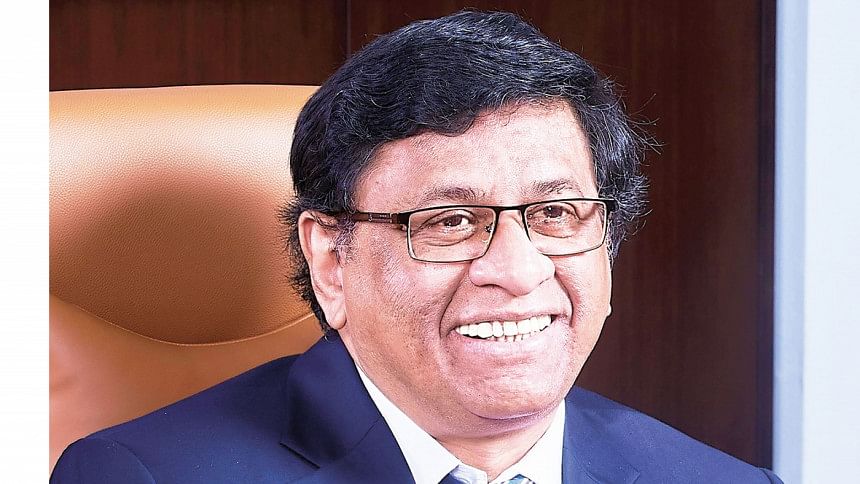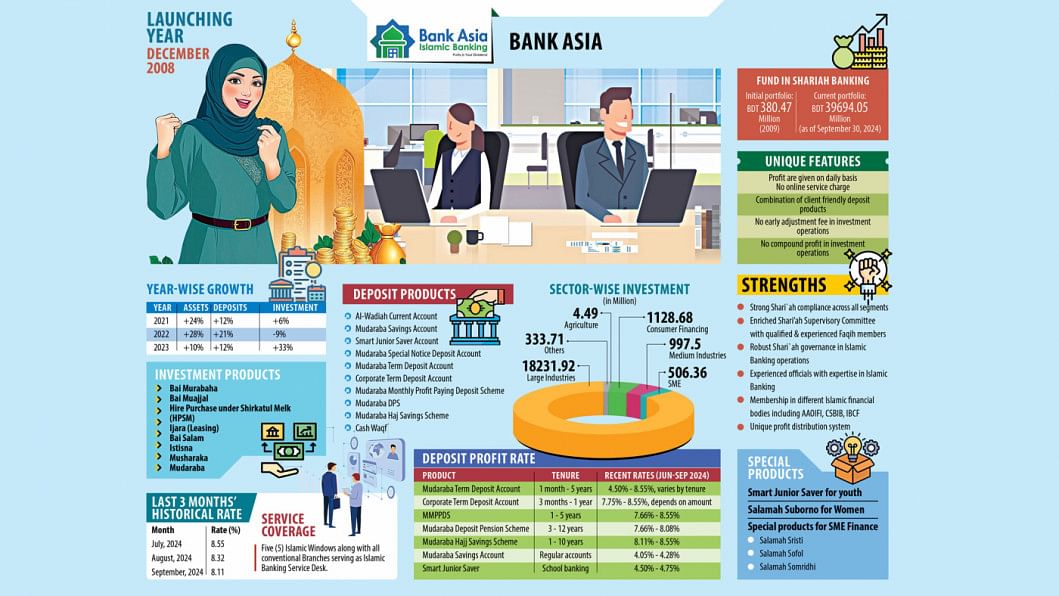Enact an Islamic Banking Companies Act Immediately

TDS: What is the current state of Islamic banking in Bangladesh?
Sohail R K Hussain (SRKH): Islamic banking has become progressively popular in Bangladesh over the past few decades, and it now plays a significant role in the country's financial system. Bangladesh has a large Muslim population, and Islamic banking provides a way for these individuals to conduct financial transactions that comply with Islamic principles.
At present, 10 full-fledged Islamic banks are providing services through their 1,687 branches, 1,011 sub-branches, and 4,172 agent banking outlets in the country. Additionally, about 30 conventional banks are conducting Islamic banking activities through 33 branches and 688 windows. The market share of Islamic banks in the total banking industry stood at 26.23 percent in terms of deposits and 28.24 percent in terms of investments, while their total asset share is 23.65 percent.
TDS: What types of Shariah-compliant services does your bank offer?
SRKH: In accordance with the principles of Shari'ah, or as per the Shariah-approved modes, Bank Asia Islamic banking offers Shari'ah-compliant liability services, such as Al-Wadeeah Current Account (AWCA), Mudaraba Savings Account (MSA), Smart Junior Saver, Mudaraba Special Notice Deposit Account (MSNDA), Mudaraba Term Deposit Account (MTDA), Corporate Term Deposit Account (CTDA), Mudaraba Monthly Profit Paying Deposit Scheme (MMPPDA), Mudaraba DPS (MDPS), Mudaraba Haj Savings Scheme (MHSS), Cash Waqf, etc.
Our Shari'ah-compliant asset services include Bai Murabaha Muajjal (BMM), Bai Murabaha Post Import (MPI), Bai Murabaha Import Bills (MIB), Bai Muajjal, Hire Purchase under Shirkatul Melk (HPSM), Ijara (Leasing), Bai Salam, Istisna, Musharaka, Mudaraba, Continuous Musharaka, etc. Other services include Debit Card, Export & Import, Foreign Exchange Products, Bill Collection, Fund Transfer, ATM Booth, and Hajj Services, among others.
TDS: What challenges does Islamic banking currently face that need to be addressed?
SRKH: Despite the immense opportunities, the Islamic banking and finance industry in Bangladesh continues to face key structural impediments. These include the absence of an Islamic Banking Act, a lack of Sukuk and other Shari'ah-compliant investment options, gaps in human capital development, a lack of unified Shari'ah rulings, the absence of apex training bodies to continuously train professionals, the absence of a secondary securitization market, the non-incorporation of subjects related to Islamic finance in the curriculum even at university levels, a lack of syndication efforts to finance public projects in a completely Shari'ah-compliant manner, insufficient budgets for research and development to come up with innovative products, the absence of an Islamic money market, and the implementation of a comprehensive Shari'ah governance framework that requires updating.
TDS: Do you have any plans to add more features to the Islamic banking channel in your bank to enhance customer service?
SRKH: Bank Asia always strives to provide quality customer services at all levels. We have already submitted an application to the Bangladesh Bank (BB) for opening 10 new Islamic windows and one full-fledged Islamic Banking Branch. To ensure high-quality services for our Islamic banking customers, we are redesigning the Islamic Banking services desk in all our conventional branches as per BRPD Circular No. 30.
TDS: Please share your suggestions for strengthening the Islamic banking sector in Bangladesh.
SRKH: Just as Islam has been established as a universally acceptable way of life that embraces all the beauty and perfection of the world, in the same way, Islami Bank is moving forward by facing all contemporary challenges.
With some groundbreaking plans, we can take Islamic banking to the pinnacle of success in our beloved Bangladesh. Here are some of my suggestions: urgently enact an Islamic Banking Companies Act, diversify investment avenues, enhance human capital development, standardize Shari'ah rulings, modernize the regulatory framework, improve governance and transparency, promote financial inclusion, encourage collaborative initiatives, conduct regular risk assessments, engage in socially responsible finance, and raise awareness of Islamic banking.


 For all latest news, follow The Daily Star's Google News channel.
For all latest news, follow The Daily Star's Google News channel. 



Comments